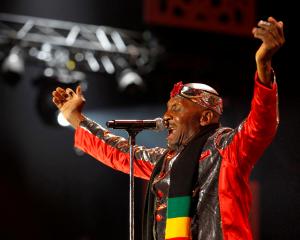
Musician
Connie Francis, the first woman to reach No 1 in the US Billboard charts, sold tens of millions of copies of her genre-spanning songs of youthful love and heartbreak.
From 1958 until 1964 Francis was the third-highest selling performer after Elvis Presley and The Beatles, and she still features prominently on best-selling artists of all time lists.
Concetta Rosemarie Franconero was born in December 1937, in Newark, New Jersey to Italian-American parents George and Ida.
George, a labourer in the shipyards and factories of New York, was a powerful force throughout her life, starting from when he helped her learn to play the accordion as a child.
He encouraged his daughter to perform at fairs, talent shows and pageants, and secured her breakthrough TV appearances on The Perry Como Show and Arthur Godfrey’s Talent Scouts.
It was Godfrey who suggested she shorten her last name to "Connie Francis" so it would be easier for radio DJs to pronounce. He also told her to drop the accordion — both, as it turns out, sound proposals.
In 1955 Francis signed to MGM Records, for whom she proceeded to record a series of flops. Dropped in 1957 Francis was about to accept a scholarship to study at New York University when she recorded one last session with MGM, accompanying Joe Lipman and his orchestra on Who's Sorry Now?, a 1923 song George had insisted she cover.
It too appeared to have failed, but then on January 1 1959 hugely influential DJ Dick Clark played it on his American Bandstand show and launched Francis to stardom. By mid-year it had sold 1million copies, topped the British charts, and forced MGM to rapidly back pedal and re-sign its new star.
Meanwhile, a romance bloomed with fellow teen idol Bobby Darin, who had volunteered to write songs for her. But when Francis’ father heard rumours the pair were planning a wedding, he stormed into a rehearsal and pulled a gun on Darin, ending their relationship and seeming to set Francis on a pained and traumatic path.
Her next two singles failed to match Who’s Sorry Now?’s success, but Francis then had the good fortune to meet Neil Sedaka and Howard Greenfield, who had written a collection of ballads for her.
Francis asked the pair for something more upbeat and Sedaka played her a song they had just written for someone else. The tune, Stupid Cupid, was an enormous hit for Francis, reaching 14 in the US charts and once again hitting No 1 in the UK.

Part of Francis’ appeal, apart from her powerful, clear voice that could be both peppy and plaintive, was a choice of material which crossed generations.
Her pop tunes appealed to teens while, particularly in America, her revisions of favourite Jewish songs, as well as tunes from Italy, Germany and Ireland, appealed to their migrant parents and grandparents.
She recorded those songs in both English and their original language, boosting her overseas sales considerably.
Teens remained Francis’ key demographic however, and she appeared in a range of "beach party" feature films, for which she also provided the soundtrack.
Her acting career had faded by the mid-1960s, and her chart success soon followed, Francis being one of many wholesome US stars whose careers were scuppered by The Beatles’ initiated "British invasion".
Francis’ last US top-10 hit was 1962’s Vacation, and her last top-40 single came in 1964. She remained a popular live performer, but after appearing at the Westbury Music Fair in New York in 1974, Francis was raped at knifepoint in her hotel room.
Her attacker was never captured but Francis successfully sued the hotel, alleging its security was faulty. Francis — who married four times and who once said only her third husband, Joseph Garzilli, was worth the trouble — said the attack destroyed her marriage and put her through years of emotional turmoil.
Calling herself America’s most famous crime victim, Francis became involved with justice and crime survivor causes, and was appointed to a presidential task force on violent crime by Ronald Reagan.
The 1980s were traumatic for Francis: she experienced severe mental health issues and attempted to take her own life in 1984 — trauma she powerfully recounted in her bestselling autobiography released later that year.
In 1989 she resumed recording. and remained a touring artist. In 2017 she released a second autobiography before retiring the following year.
Francis was introduced to a new generation this year when her 1962 song Pretty Little Baby — a song which Francis confessed she had forgotten recording — became a viral sensation on social media.
"To think that a song I recorded 63 years ago is touching the hearts of millions of people is truly awesome," she said.
Connie Francis died on July 16, aged 87. — Allied Media/agencies












